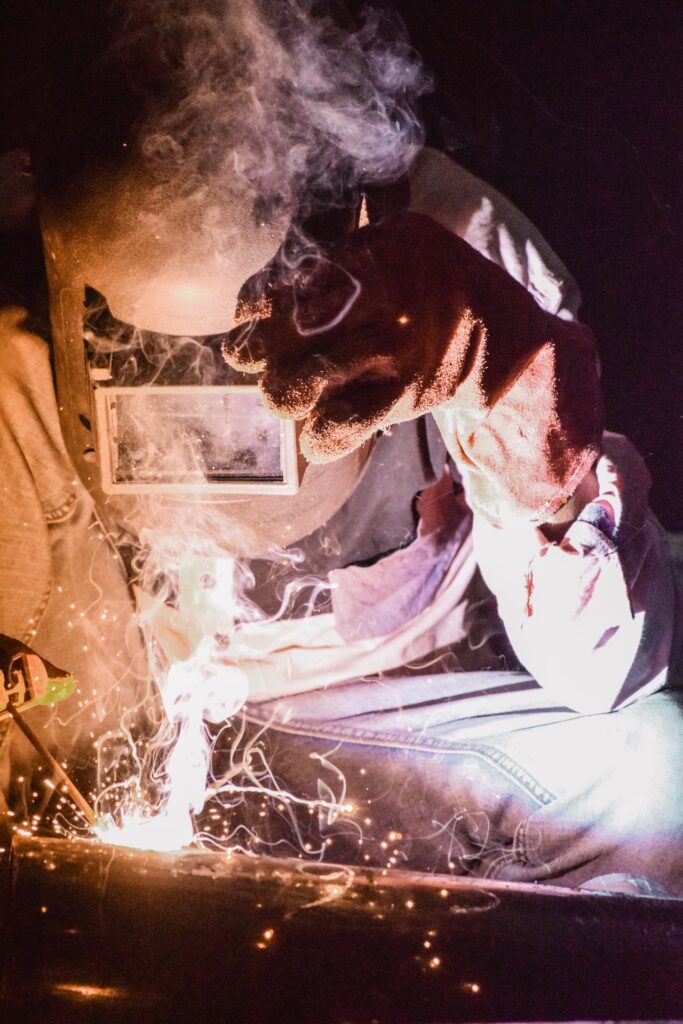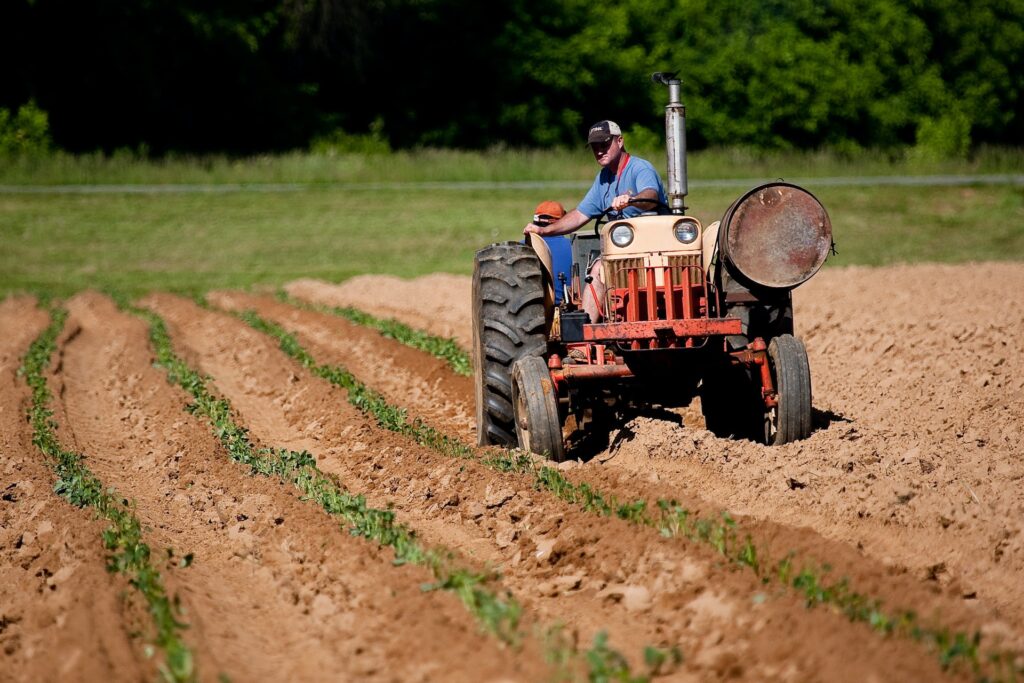Stick welding on a farm is a crucial process for repairing and maintaining farm equipment and structures. This versatile and affordable welding technique can produce strong, durable welds that can withstand the tough conditions on a farm.
With proper safety precautions and techniques, stick welding can be a valuable tool for farmers looking to make necessary repairs and improvements on their property!
Welding is an essential skill for any farmer. Whether you need to repair broken machinery or build a new fence, having the right welding equipment is crucial for your success. Stick welding is one of the most popular welding techniques used on farms because of its versatility and affordability.
In this blog post, we’ll discuss the benefits of stick welding on a farm and the importance of choosing a reliable welding machine. There is no doubt that stick welding on a farm is the most convenient choice.
This page contains affiliate links in which we receive a small commission at no additional cost to you. As an Amazon Associate I earn from qualifying purchases.
What is Stick Welding?
Stick welding, also known as shielded metal arc welding (SMAW), is a manual welding process that involves using a consumable electrode covered in flux to join metal parts together. The electrode is fed into the weld pool, which is created by the heat of the arc between the electrode and the metal. The electrode also provides a shielding gas that protects the weld pool from contamination.
In stick welding, the welder holds the electrode and moves it along the joint, creating a bead of weld metal. The welder must maintain a consistent arc length to ensure proper welding conditions and control the heat input to prevent overheating and warping of the metal. The electrode also produces slag, which must be removed between passes to ensure a clean, strong weld.

Stick welding is known for its versatility, as it can be used on a variety of metal types, including steel, cast iron, and stainless steel. It can also be used in various welding positions, including overhead, vertical, and horizontal. However, stick welding requires a certain amount of skill and practice to master, and it is generally considered a slower welding process than other welding techniques such as MIG welding.
Despite these challenges, stick welding is widely used in many industries, including construction, manufacturing, and agriculture, due to its affordability, ease of use, and ability to produce strong, durable welds.
Benefits of Stick Welding on a Farm
- Versatility: Stick welding can be used on a variety of materials, including steel, cast iron, and stainless steel. This makes it ideal for farm repair work, as you can use it on anything from a broken plow to a damaged fence post.
- Affordability: Stick welding machines are generally less expensive than other welding techniques, making it an economical option for farmers who need to repair equipment or build structures on a budget.
- Portability: Most stick welding machines are compact and lightweight, making them easy to move from one job site to another. This is particularly useful for farmers who need to make repairs in remote locations.
- Ease of Use: Stick welding is a straightforward process that can be learned relatively quickly. This makes it ideal for farmers who need to make quick repairs and don’t have the time or resources to invest in more complicated welding techniques.

Choosing a Reliable Stick Welding Machine
When it comes to stick welding, choosing the right machine is crucial. A good welding machine should be durable, reliable, and easy to use. Here are some key factors to consider when choosing a stick welding machine for your farm:
- Power Output: The power output of a welding machine determines the thickness of metal it can handle. For stick welding on a farm applications, a machine with a power output of between 140 and 200 amps should be sufficient.
- Portability: As mentioned earlier, portability is an important factor for farmers who need to move their welding machine from one job site to another. Look for a machine with a compact design and lightweight construction.
- Durability: Welding machines are subjected to a lot of wear and tear on a farm, so it’s important to choose one that’s built to last. Look for machines made with high-quality materials that can withstand the rigors of farm work.
- Ease of Use: A good welding machine should be easy to set up and use, even for those with limited welding experience. Look for machines with simple controls and intuitive operation.
Other Equipment for Stick Welding on a Farm
In addition to a stick welding machine, there are several other tools and accessories that are necessary for stick welding on a farm. Some of the most essential tools and accessories include:
- Welding helmet: A welding helmet is an essential piece of personal protective equipment that protects the welder’s face and eyes from the bright light and sparks produced by the welding process. A welding helmet with a adjustable shade lens is recommended to protect against UV and IR radiation.
- Heavy-duty gloves: Welding gloves protect the welder’s hands from heat and burns and provide a better grip on the electrode. Look for gloves made of leather or other heat-resistant materials.
- Welding jacket: A fire-resistant welding jacket protects the welder’s clothing from sparks and spatter and helps prevent burns.
- Electrodes: Electrodes are the consumable components of the stick welding process. The electrode must match the type of metal being welded and the welding conditions, and should be stored in a dry, protected area to prevent moisture damage.
- Chipping hammer and wire brush: A chipping hammer and wire brush are used to remove slag from the surface of the weld between passes.
- Angle grinder and cutting tools: Angle grinders are essential for cutting and cleaning metal that needs to be welded. Don’t underestimate the importance of cleaning the area that needs to be welded to ensure a strong weld. Depending on the situation, other cutting tools may be better suited for cutting tasks.
By having these tools and accessories on hand, farmers can ensure that they have everything they need for a successful stick welding job on the farm.
Farm Welding Safety
Stick welding is a safe and effective welding technique when performed properly, but there are certain safety precautions that must be taken to minimize the risk of injury and damage to equipment and property. Some safety tips for stick welding on a farm include:
- Wear appropriate personal protective equipment: This includes a welding helmet to protect your face and eyes from the bright light and sparks produced by the welding process, heavy-duty gloves to protect your hands from the heat and burns, and a fire-resistant welding jacket to protect your clothing from sparks and spatter.
- Ensure proper ventilation: Welding produces fumes and gases that can be harmful to breathe, so it is important to have adequate ventilation in the welding area. Open windows or use fans to move the fumes away from your breathing zone, and avoid welding in enclosed spaces without proper ventilation.
- Avoid welding in wet or damp conditions: Welding should only be performed in dry conditions to avoid the risk of electric shock and to ensure a clean, strong weld. Never touch the electrode or metal parts with wet hands or gloves, and avoid welding near standing water.
- Keep flammable materials away from the welding area: This includes materials such as fuel cans, paper, and wood. Welding can produce sparks that can ignite these materials, so it is important to keep them at a safe distance from the welding area.
- Use proper grounding techniques: Stick welding requires a proper electrical grounding to ensure a stable arc and to prevent electrical shock. Make sure that the metal being welded is properly grounded and that the welder is wearing dry, insulating footwear.
- Store welding equipment properly: When not in use, store welding equipment in a dry, protected area to prevent damage from moisture and rust. Check equipment for any damage before use, and replace any damaged parts to ensure safe and effective welding.
By following these safety tips, farmers can enjoy the benefits of stick welding while minimizing the risk of injury and damage to equipment and property.
Conclusion
In conclusion, stick welding is an essential skill for any farmer and a reliable welding machine is a must-have tool. When choosing a machine, consider factors such as power output, portability, durability, and ease of use to ensure you get the best machine for your needs. With the right stick welding machine, you can tackle any repair or construction project on your farm with confidence.
